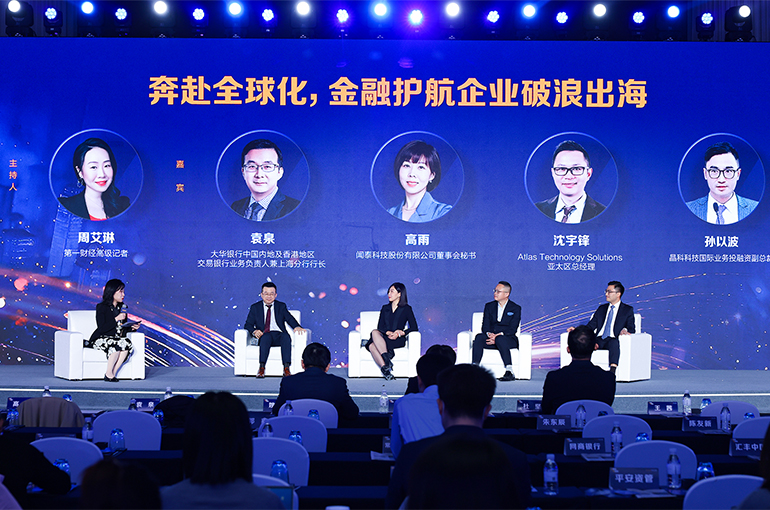 Wingtech Exec Urges Outbound Chinese Firms to Embrace ‘Local for Local’ Strategy as Geopolitical Risks Grow
Wingtech Exec Urges Outbound Chinese Firms to Embrace ‘Local for Local’ Strategy as Geopolitical Risks Grow(Yicai) Dec. 2 -- Chinese companies expanding overseas should bolster their global supply chains, especially the ability to produce and sell locally, a strategy known as ‘Local for Local,’ to deal with increasing geopolitical risks, according to an executive at Wingtech Technology.
A ‘Local for Local’ strategy means adapting business operations to each market by producing goods locally, hiring local talent, and understanding the cultural and regulatory environment. This approach helps reduce risks from cross-border trade and better serves local client and consumer needs.
Outbound Chinese firms also must not only be competitive in terms of market share, cost advantages, and efficiency but also meet the higher standards of international clients in sustainability as well as their environmental, social, and governance requirements, said Gao Yu, board secretary at Wingtech.
They must provide complete solutions and services too, she added during a roundtable discussion at the China Financial Value Ranking summit hosted by Yicai last week.
Wingtech, a Jiaxing-based semiconductor and product integration business, earned 88 percent of its revenue from overseas markets last year. The products made by the Shanghai-listed company, which is part of Apple’s supply chain, can be found in vehicles, computers, mobiles, and wearable devices among others.
At the same roundtable, Jinko Power Technology Vice President Sun Yibo said the solar power plant operator always sets up local teams overseas. Although final decisions are made at head office in Shanghai, the company relies entirely on local managers to drive the development and find the investment for new projects, he said.
About 5 percent of Jinko Power’s earned revenue came from abroad last year, according to its latest annual report. The company has 3.4 gigawatts of projects under construction or in the planning stage abroad.
Sun pointed out that in the process of developing overseas business, Jinko Power focuses on respecting local culture, law, regulations, and market rules, avoiding directly applying its way of doing things in China to other countries and makes adjustments based on local conditions.
Chinese firms should adopt a diversified strategy to deal with uncertainties, such as varying their partners, financial channels and tools, and hedging strategies, Sun said. In this way they can reduce political and market risks and cope better with exchange and interest rate fluctuations.
To address challenges such as a strengthening US dollar and potentially higher US import tariffs, Chinese firms going overseas should raise funds in Chinese yuan and make payments using the redback to offset foreign exchange fluctuations and lower their financing costs, said Albert Yuan, president of the United Overseas Bank’s Shanghai branch and head of transaction banking in the Chinese mainland and Hong Kong.
They should also link arms with local banks with strong local resources, Yuan said. For example, UOB can provide all-round support for Chinese firms investing in Southeast Asia thanks to the Singapore-based lender’s deep roots in SE Asian countries such as Thailand, Malaysia and Indonesia. This includes financing, supply chain management, and the building of dealer networks, he said.
Editors: Tang Shihua, Kim Taylor